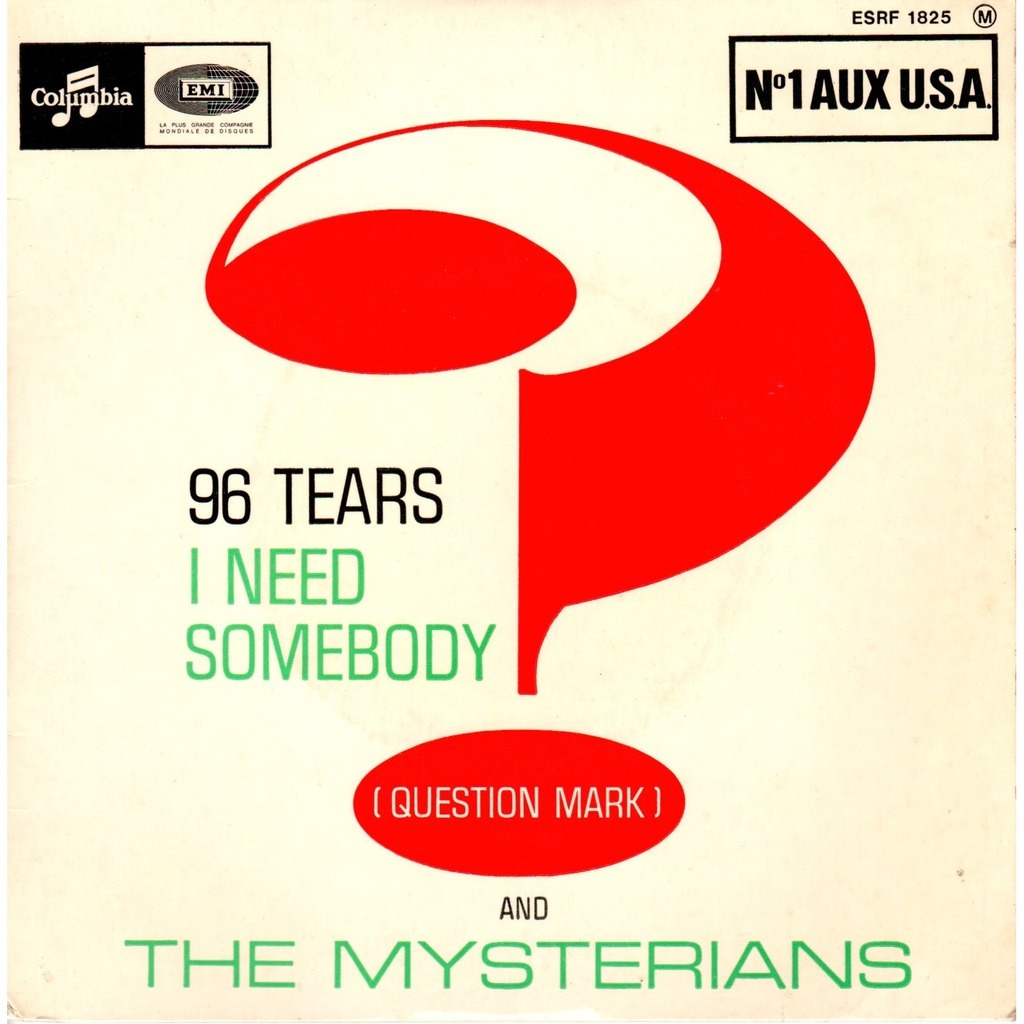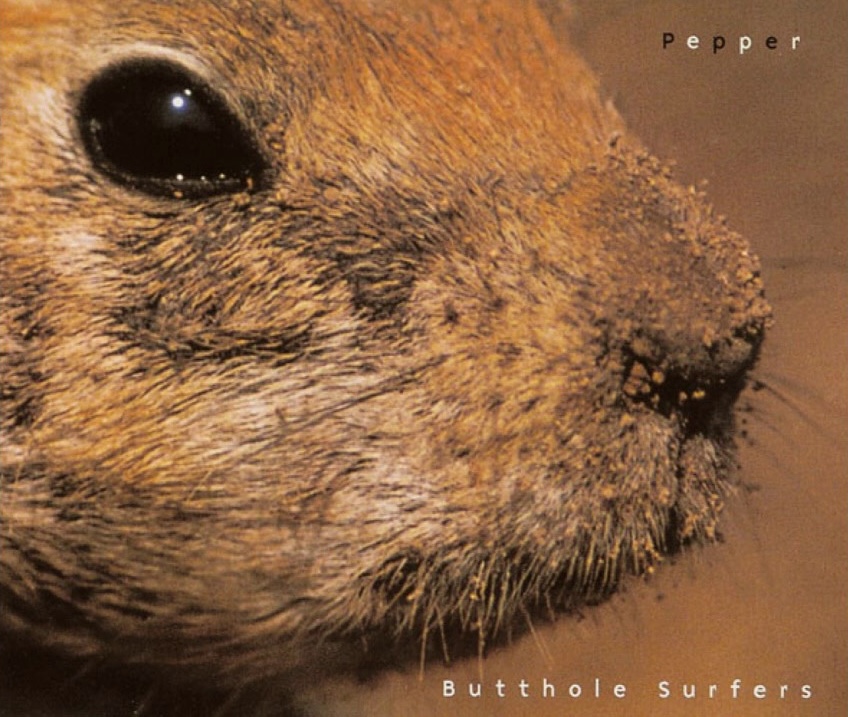October 29, 1966
- STAYED AT #1:1 Week
In The Number Ones, I'm reviewing every single #1 single in the history of the Billboard Hot 100, starting with the chart's beginning, in 1958, and working my way up into the present.
It's so fucking weird. We hear the organ before we hear anything else: A Vox Continental, cheap and dinky, bleating out a few notes before the rest of the band kicks in. The entire rest of the band is on pure rhythm-section duty, knocking out a replacement-level garage-rock shuffle that's just there to work as a bed for the organ, which hammers out one goofily catchy riff after another, always threatening to break into "Baby Elephant Walk."
And then there's ?, the singer. (It's pronounced "Question Mark And The Mysterians," but I've always preferred to think of it as "[Vaguely Quizzical Tim Taylor Grunt] And The Mysterians.) He's not singing, exactly. He's talking and howling at the same time. None of what he says makes a lot of sense, and none of it fits into strict verse-chorus-verse structure. Instead, he's riding the beat, growling out his near-nonsense words like some genetic hybrid of Mick Jagger and James Brown.
There's a story to it. ? has been dumped, but he's got a plan for revenge. He's going to get back with this girl, and then he's going to dump her, and then she's going to cry 96 tears. It is not a foolproof plan. Describing this whole scenario, ? sounds both deranged and kind of bored.
Why this specific number of tears? We don't know. According to the other members of the band, the original title was "69 Tears," but they knew they had to change it because it was too dirty to get radio play. But ? himself says that the number 96 has a deep philosophical meaning but also that he won't say what the meaning is. He really is a mysterian.
If the former story is true, it's remarkable that anyone in the band even had the slightest inkling that they could ever get radio play. It was a profoundly unlikely event that anyone would ever hear this song, let alone that it would ever become the #1 song in the country. The Mysterians had recorded "96 Tears" in a converted living room in Bay City, Michigan, and they'd had a local label press up 500 copies of it. And then even those didn't seem like they'd ever sell.
They were kids. All of the Mysterians were Mexican-American teenagers. They were the sons of migrant farm workers who'd found jobs in Michigan's Saginaw Valley, working at a GM plant there. They were a few hours away from Detroit, with its thriving garage-rock scene, but they were a scene unto themselves. The Mysterians had started out as an instrumental band, playing surf-guitar covers at local parties. When they decided that they needed a singer, they found ? -- probably born Rudy Martinez, though he still never answers to any name other than ? -- who could not have been a more perfect rock frontman. They recruited him because he was the best dancer in town. He claimed to be an alien. ? named the band after a Japanese sci-fi movie from the '50s, one that involves both a giant robot and an alien invasion. Once "96 Tears" blew up, rumor had it that ? never, ever removed his sunglasses, for any reason.
Even with ? on board, "96 Tears," the band's first single, had a long and unlikely route to hit status. The members of the band, still in high school when they made "96 Tears," took their 500 copies of the record around to local labels. They told a local radio station that they'd play whatever promotional shows they wanted if the station would play the record sometimes. It spread from city to city -- first Saginaw, then Flint, then finally Detroit. Then ? And The Mysterians signed with Cameo-Parkway, a national label that was shut down two years later. So much for that.
? And The Mysterians had plenty of reunions later on, but they only made it to 1969 before breaking up. They had a few more minor hits, but nothing was anywhere near as successful as "96 Tears." That song exists as a glorious one-off, a relic of an era when a bunch of kids could make a bunch of weird and raw noises and those noises could ascend all the way to #1. Think of it as the "Panda" of its era.
GRADE: 8/10
BONUS BEATS: Here's a live recording of New York synth-punk pioneers Suicide playing a supremely zonked cover of "96 Tears" live at CBGB, turning it into an echoing hymn about the four horsemen of the apocalypse:
BONUS BONUS BEATS: Here's a 1995 live recording of Iggy Pop, ?'s fellow '60s Michigan garage-rock weirdo, covering "96 Tears":
BONUS BONUS BONUS BEATS: Here's the electronically revved-up cover of "96 Tears" that Primal Scream recorded during the sessions for their 1997 album Vanishing Point:






